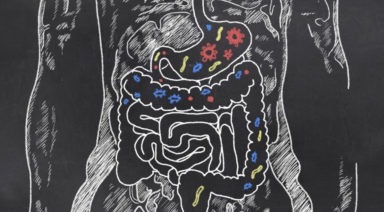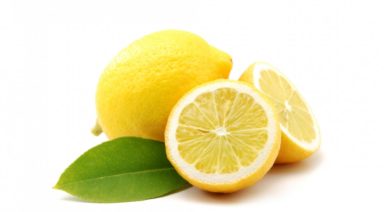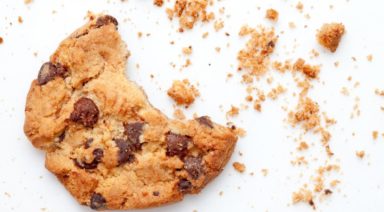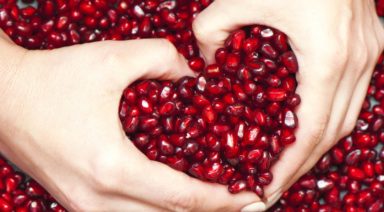Enliven Your Mind With Eleuthero And Caprylic Acid

I first became excited about Eleuthero root and Caprylic acid when doing bookstore and comedy tours. I had been pushing myself so hard, I became mentally foggy in the early afternoon. My energy had also decreased, and I was showing signs of fatigue, and a bit of despair. It turns out that the stress of touring was taking its toll. That’s when a friend suggested that I look into Eleuthero (Ciwujia, Eleutherococcus senticosus, Acanthopanax senticosus), a small shrub native to Northeastern Asia. Some call it Devil’s Bush, but its most popular name is Siberian Ginseng.
This 2000-year-old Chinese remedy is not related to American Ginseng (Panax quinquefolius) or the more famous Panax Ginseng. Eleuthero is unique. It’s an adaptogen that can help your body and mind handle stress. It has a long list of potential health benefits.
Here are the most popular Eleuthero benefits:
- Increased blood flow to the brain. Improves memory, concentration, clarity, and flow of ideas.
- Reduced fatigue and boosted energy
- Improved metabolism
- Improved cardiovascular health by helping with blood flow and blood pressure.
- Regulated blood sugar
- Improved mood and attitude
- Enhanced exercise
- Reduced instances of osteoporosis with increased muscle and bone strength
- Manages menopause by binding to estrogen receptor sites
- Reduced respiratory tract infections
- Improved lymphatic function, which results in reducing edema (swelling)
- Prevents and repairs nerve damage
While all of these things are positive, there are potential side effects when consuming Eleuthero, including confusion, insomnia, headaches, feelings of agitation, raised blood pressure, hormonal changes, nerve pain, and rash.
If you’re taking medications, there might be more extreme side effects, so please be careful. Always consult a physician when adding new herbs and supplements to your regiment.
What is Caprylic Acid (and what are its cousins)?
Also known as MCT Oil, Caprylic Acid is fatty acid distilled (fractionated) from coconut oil. MCTs comprise unique types of fat that most of us can easily and quickly convert to energy. While there are many brands, there are only four types of these medium-chain fatty acids (triglycerides).
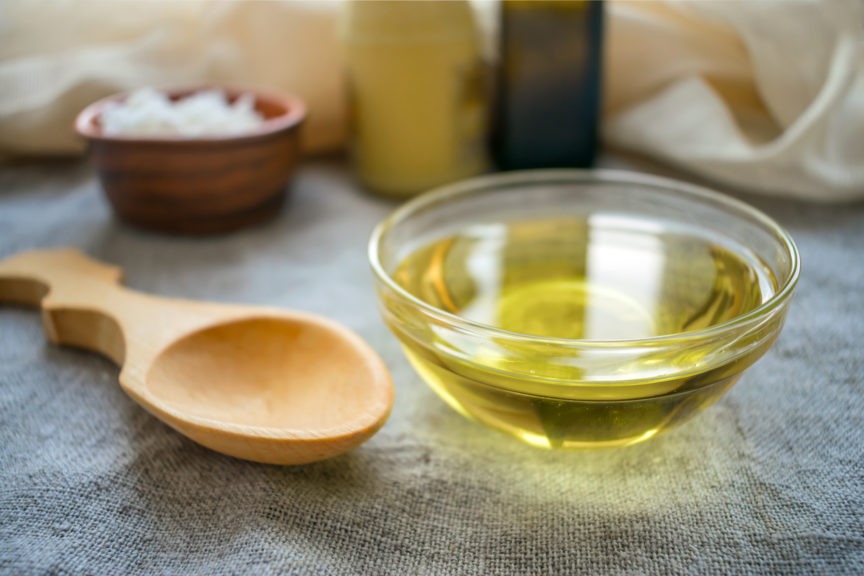
Liquid coconut MCT oil
Here’s how these four big-boys measure up:
- Caproic Acid or Hexanoic Acid (C6): oily, unpleasant odor, water-soluble, boosts production of blood ketone (compounds produced during fasting that provide accessible energy for the brain and muscles)
- Caprylic Acid or Octanoic Acid (C8): helps with weight loss, increases energy, boosts ketone production, fights cancer, antimicrobial
- Capric Acid or Decanoic Acid (C10): similar to C8, but a little more potent, and might take longer for the body to convert the acid into ketones
- Lauric Acid or Dodecanoic Acid (C12): a major part of coconut oil, antimicrobial, bigger molecules means it takes a long time to process, which is not helpful to brain function, energy levels, or other systems in the body
While coconut oil contains 65% MCTs, feel free to increase your intake of this luscious oil. Raw coconut oil is also helpful when trying to eradicate yeast. It also kills harmful bacteria, viruses, and other contaminants in your body.
Since many relevant tests now point to Caprylic Acid (C8) and Capric Acid (C10) as the most concentrated MCTs (10X that of coconut oil) and have emerged as the purest and beneficial MCT oils, they’ve become quite the rage.
Benefits of Caprylic Acid (C8) and Capric Acid (C10)
Since C8 and C10 are flavorless, you can add them to coffee, smoothies, and more, without having to endure any cumbersome aftertaste. Just be careful not to take too much. If you’re more sensitive than most, more than a teaspoon might result in an upset stomach or diarrhea.
Here are the most popular benefits of these helpful oils:
- Improves metabolism
- Increases physical and mental energy
- Provides an easy way to lose a little weight
- Increased feelings of tummy fullness
- Reduces appetite
- Less likely to be stored as fat
- Enhances exercise performance
- Beneficial for tooth infections, active bladder, and respiratory health
Over 30 years, scientists have studied various types of Ginseng, including Eleuthero, and their impact on competitive athletic performance.
Subject of a large-scale study with over 5,000 participants, Eleuthero emerged as a powerful ally in several categories:
- Lung capacity was improved
- Depth of breathing grew
- Reduced restlessness
- Increased stamina
- Athletes saw a significant improvement in the length of time it took them to recover from a grueling workout or competition
- Participants showed decreased chances of tissue hypoperfusion, hypoxia, hemorrhagic shock, or pulmonary embolism
Similarly, some of the studies that show the effectiveness of Caprylic Acid were equally positive:
- Helpful in eradicating candida (fungal) infections
- Superior and less expensive than the drug Diflucan
- Effective anti-cancer, anti-aging, anti-Alzheimer’s disease, anti-Autism, anti-infection
- Effective in general circulatory improvement
While all of these results are encouraging, many people in the scientific community have not been friendly toward proponents of Eleuthero and Caprylic Acid. While several studies conclusively point to specific values of these brain and energy boosters, many other studies are inconclusive.
When seeking improvements in peacefulness, along with boosts in brain and immune system functions, it might be helpful to add Holy Basil, Gotu Kola, and Ashwagandha to your daily regiment. These herbs will give your body, mind, and heart a little relaxation amid all the passion, power, and excitement.
To improve your brain function and the immune system, you might also consider the following ideas:
- Buy, cook and eat healthy, organic, whole foods
- Reduce meat consumption
- Increase your awareness of herbs and healing tonics
- Exercise regularly
- Selflessly serve other human beings
- Meditate
- Kundalini yoga
- Prana (Pranic) breathing
- Prayer
- Monthly, quarterly, and yearly rituals of rebirth and renewal
In all things, assume that you and the Divine are working in unison to improve conditions and realities for yourself, and for all living beings, in all the realms, throughout all instances and trajectories of spacetime.
Dr. Jack Kruse Explains the Importance of Sunlight Vitamin D for Health

Of all the health secrets, one of the most sought-after is how to optimize our health, and a common question is why health and healing have to be so complicated. But perhaps it doesn’t.
Neurosurgeon Dr. Jack Kruse carries a simple message to think about how exposure to sunlight has gotten a bad rap over the past few decades and how our relationship to the sun is the key to staying well and energized.
Dr. Kruse says we seem to have forgotten that the sunlight’s system of photosynthesis supports most of the food chain on this planet. And, since our skin is derived from neuroectoderm (cellular structures associated with the brain and nervous system) we rely on the sun for photosynthesis to make vitamin D to protect our health. Vitamin D is too often overlooked by modern medicine in its role to keep us alive and healthy. Maybe, suggests Kruse, we need to rethink our position on Vitamin D and how we produce it.
Let There Be Light
In a recent interview, Dr. Kruse tells Regina Meredith that too many of us are continually exposed to artificial indoor light, causing us to miss out on vital factors required to boost the immune system and allow it to work optimally. Our bodies require the full spectrum of the sun’s rays to produce vitamin D, a hormone naturally created in our skin cells and used for myriad biochemical processes.
The Mayo Clinic explains that vitamin D is needed to regulate many cellular functions in the body and acts to support anti-inflammatory responses, antioxidant activity, nerve cells, the immune system, muscle function, and brain cell activity. Beyond this, explains Dr. Kruse, vitamin D is helpful in warding off viruses and bacteria, and helping the cells efficiently create and use energy.
Vitamin D is an overlooked nutrient, especially in northern climates where sunlight can be scarce for months at a time. Kruse links a number of health issues with vitamin D deficiency, including obesity, bone malformation, psoriasis, heart failure in the newly born, osteoporosis, cardiovascular disease, arthritis, mental illness, diabetes, and even cancer, as well as most autoimmune diseases. Much of these health issues may be attributed to what Dr. Kruse calls a “quantum-biological problem,” meaning that it’s a story about sunlight and our relationship to it.
A fact of nature is that skin color, as well as other personal health factors, influences how much sunlight we need, which determines our state of health, the efficiency of the immune system, and the production of energy in our cells. People with darker skin need more sunlight than those with lighter skin to produce vitamin D. It’s not a racial problem, says Kruse, but rather a biological issue, despite how media may misinterpret it and how some physicians can misunderstand or overlook this fact. We have to be aware of our skin type and gauge our exposure to the sun accordingly, to glean the benefits of good health and to ward off a host of illnesses.






















